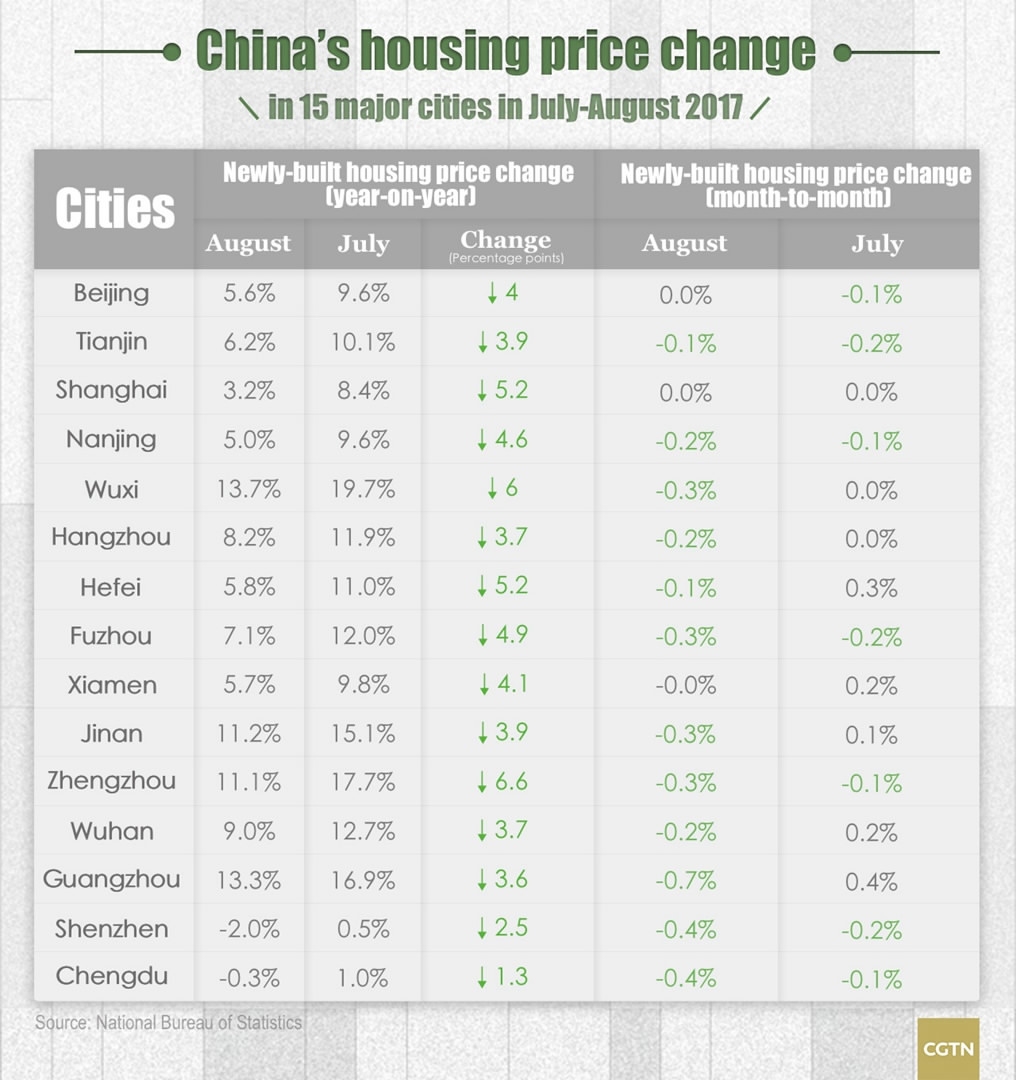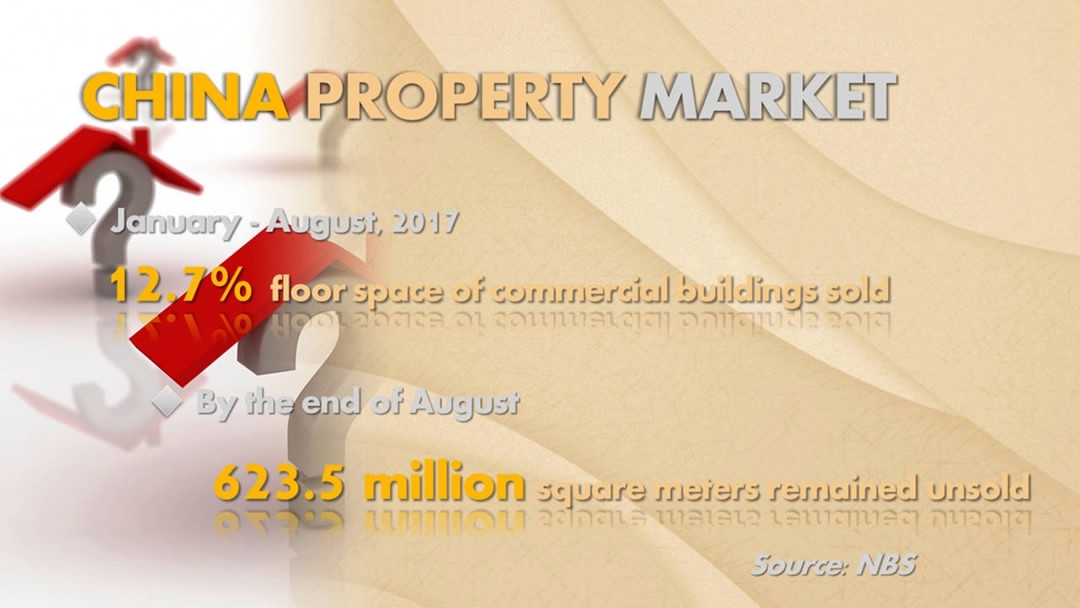
Business
18:45, 06-Oct-2017
China’s home market cools with regulations in sales season
By CGTN's Yao Nian

Chinese housing market showed signs of cooling during the conventional “Golden September, Silver October” sales season, as a new round of regulations were adopted nationwide just a week before National Day.
On September 22-23, six major cities, including Chongqing, Nanchang, Nanning, Changsha, Guiyang, and Shijiazhuang, have launched restrictions on home sales. Other cities like Xi’an, Wuhan, and Guilin also released new regulations.
“For the first-tier cities, we have already seen a slowdown in its home prices on a monthly basis, and lower growth rate year-on-year,” said Liu Weimin, a researcher from Development Research Center of the State Council.

Restriction on home sales
This new round of regulations featured home liquidity tightening. A total of 46 cities across the country have carried out restrictions on home sales, data from Centaline Group’s property research center showed.
Other regulations include restrictions on home purchasing conditions, price cap, increase of minimum down payments required for mortgages, and ban on the transformation of commercial buildings to homes, have been passed by over a hundred cities since September last year.
In late July this year, nine ministerial departments also jointly launched a pilot rental program in 12 major cities with net population inflows to make homes more affordable for rent. Additionally, Nanjing and Guangzhou granted equal rights for both tenants and landlords.

VCG Photo
VCG Photo
Curbing property speculation
The regulations are the country’s strengthened efforts to rein in property speculation this year after rocketing housing prices fueled asset bubble concerns, particularly in major cities.
“If you buy a new home, it will take you two years to get the real estate license from the signing of the contract [according to new regulations], and if home sales are banned in 3 years from getting the license, it means you have to hold the home for 5 years before selling it. If a fund does not add 10-percent value each year, the investment will fail,” said 40-year-old Dong Shaogang, a Guangzhou businessman keen on real estate investment.
In terms of floor area, property sales gained 12.7 percent in the first eight months, retreating 1.3 percentage points from the January-July period, according to National Bureau of Statistics.

By the end of August, 623.5 million square meters of property remained unsold, down by 11.4 million square meters from a month earlier.
The inventory of unsold new homes in Beijing lowered to 47,000 units until September this year, down nearly 28 percent compared to the same period last year, according to Yahao Real Estate Selling & Consulting Solution Agency.
Meanwhile, China's building materials sector remained weak as government restrictions on the property market continued to weigh. Cement output fell 0.5 percent year-on-year to 1.5 billion tons in the first eight months, in contrast to the 2.5 percent gain seen during the same period last year.

VCG Photo
VCG Photo
Establishing a long-term mechanism
The restriction on home sales is a short-term tactic. The next step is to speed up establishment of long-term mechanism for real estate market, said Deng Yusong, Vice-Director-General of Institute for Market Economy, part of the Development Research Center of the State Council.
Local governments have started to take full advantage of land, finance, housing security and other policy measures to comprehensively curb investment. Examples include increasing land supply, differentiating mortgages, improving housing security systems and stepping up construction of property with joint ownership.
The rental housing system will be another important aspect of a long-term mechanism for the real estate market. Statistics show that Beijing, Shanghai, Guangzhou, and Shenzhen will offer over 2.5 million rental homes in the next five years.
(CGTN’s Wang Yiqian also contributed to the story.)

SITEMAP
Copyright © 2018 CGTN. Beijing ICP prepared NO.16065310-3
Copyright © 2018 CGTN. Beijing ICP prepared NO.16065310-3